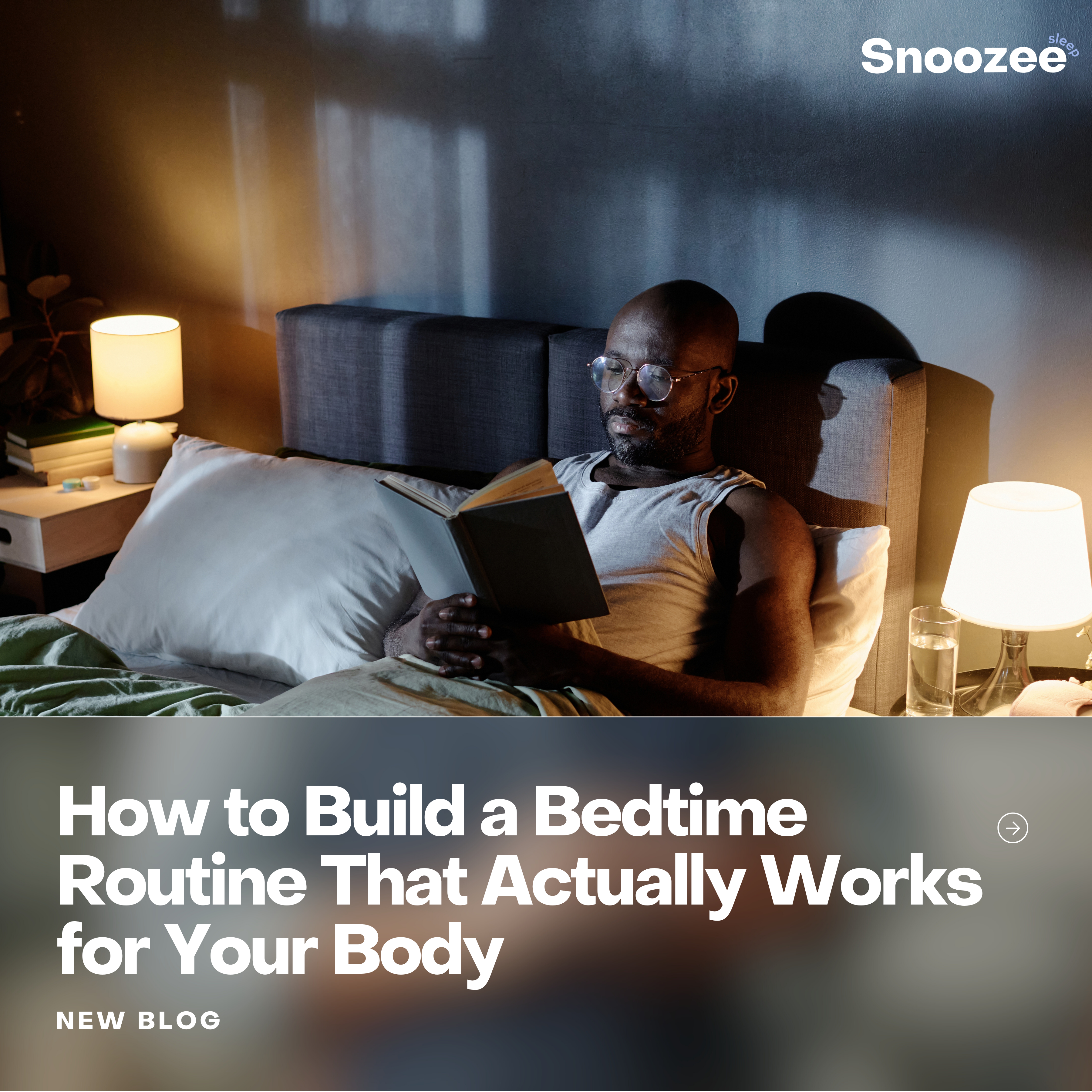We’ve all heard that having a bedtime routine is good for you. But if you’re still waking up stiff, tired, or mentally drained, your routine might be missing one key ingredient: your body’s real needs.
The truth is, a bedtime routine shouldn’t just help you fall asleep — it should help your muscles, joints, and nervous system wind down, too.
If you're ready to sleep deeper, feel better, and wake up without aches or tension, here’s how to build a bedtime routine that supports your body (not just your mind).
1. Start 30–60 Minutes Before Bedtime
The body doesn’t switch from "on" to "off" instantly. Creating a buffer zone before bed gives your nervous system time to settle. This helps lower cortisol (your stress hormone) and signals to your body that it’s safe to relax.
Try this:
-
Dim the lights in your home
-
Lower the volume on music or TV
-
Avoid anything that feels mentally “busy” (emails, news, group chats)
This shift into low stimulation tells your body it's time to let go.
2. Stretch or Move Gently
Many people go from hours of sitting or scrolling straight into bed. But your body holds tension — especially in the neck, shoulders, and lower back — and without gentle movement, that tension carries into your sleep.
Try:
-
Shoulder rolls and neck circles
-
Cat-cow stretches or lying spinal twists
-
A few minutes of slow walking or foam rolling
Even 5 minutes can improve circulation and loosen tight muscles, helping your body rest more deeply.
3. Create a Calm Bathroom Ritual
Turning your skincare or shower routine into a ritual signals closure to your day. Warm water also relaxes your muscles and regulates body temperature, which can improve sleep onset.
Tip: Use this time to check in with yourself physically. Is your body sore, tense, or tired? Listen to it — not just your schedule.
4. Choose Your Sleep Position Intentionally
How you position your body during sleep affects how well it recovers overnight. If you’re curling into tight positions or using the wrong pillow, you may be reinforcing poor posture and waking up with stiffness.
Best practices:
-
Side sleepers: Keep your spine straight, avoid curling into a ball
-
Back sleepers: Keep your head in line with your spine (not tilted forward)
-
Avoid stacking multiple pillows — this can push your head out of alignment
Your pillow plays a huge role here (more on that in a moment).
5. Wind Down Your Mind — Without Forcing It
You don’t have to meditate for 30 minutes to relax your brain. But giving it space to slow down can prevent overthinking in bed.
Try:
-
Light journaling (3 lines is enough)
-
Breathing techniques (like 4-7-8 breathing)
-
Reading a physical book instead of scrolling
It’s not about perfection — it’s about creating a consistent cue that signals: the day is done.
6. Set Up Your Sleep Environment for Comfort
Your bed should be the most supportive place in your home — not the most overlooked.
Check:
-
Is your room cool, dark, and quiet enough?
-
Does your mattress support your hips and back evenly?
-
Most importantly, is your pillow supporting your neck and shoulders?
Which brings us to the most crucial piece of all…
Don’t Forget the Most Important Support System: Your Pillow
You can stretch, journal, and turn off your phone — but if your neck is tilted at the wrong angle all night, your body won’t fully recover, no matter how perfect your routine is.
That’s why choosing the right pillow is essential.
Why the ShoulderCurve™ Pillow Completes the Routine
The ShoulderCurve™ Pillow is designed to support your body in its most vulnerable state — while you’re asleep.
With features like:
-
A contoured neck dip to keep your spine aligned
-
A shoulder cutout that reduces tension for side sleepers
-
High-density memory foam that adapts to your shape
-
And an adjustable height so it works for your unique posture
…it gives your muscles permission to fully relax, so your bedtime routine actually pays off.
“I didn’t realize how much my pillow was working against me until I switched. The ShoulderCurve helped me sleep through the night — and I finally wake up without pain.” – Emma L., verified customer
Final Thoughts
The most effective bedtime routine doesn’t require perfection — just intention.
By focusing on how your body feels, and supporting it from the moment you start winding down until the moment you wake up, you’ll notice better sleep, better mornings, and fewer aches and pains.
Your body does so much for you all day. Let your sleep routine give something back.
Try the ShoulderCurve™ Pillow and build a bedtime routine that works with your body — not against it.



Share and get 15% off!
Simply share this product on one of the following social networks and you will unlock 15% off!